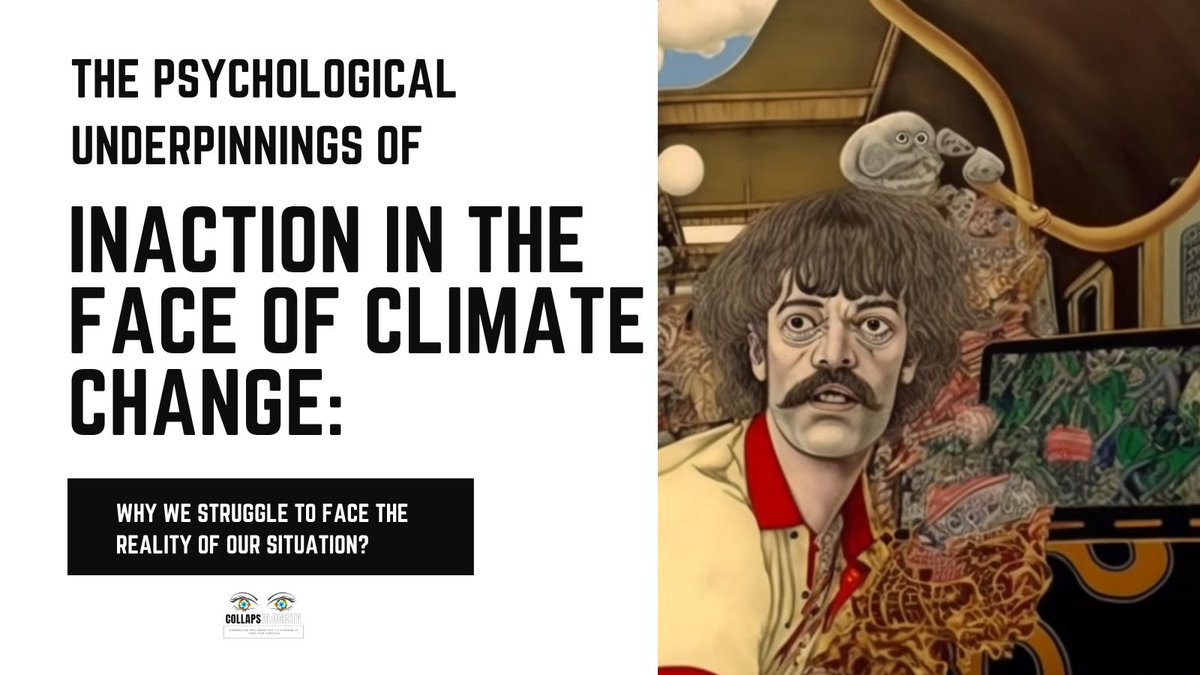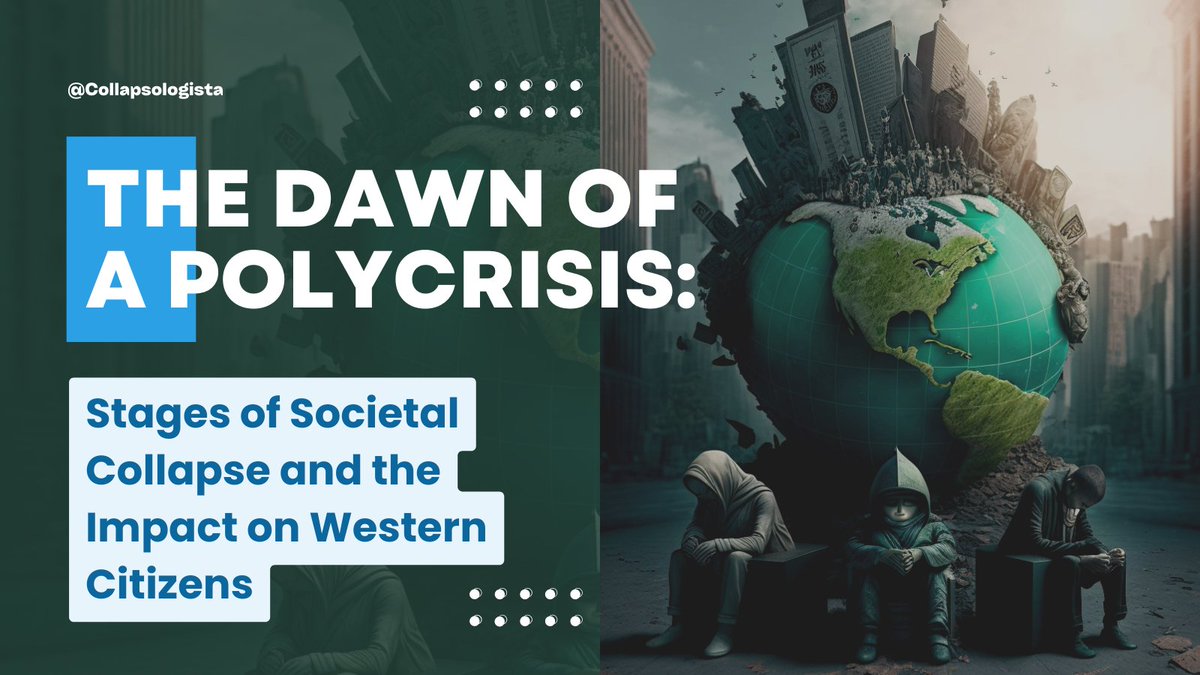🧵Jem Bendell's Deep Adaptation framework offers a different perspective on climate change, suggesting that collapse is inevitable, and that we must focus on personal and community #adaptation. This framework is built upon the 4R model: Resilience, Relinquishment, Restoration, 👇 

and Reconciliation. Considering the concern of continuing industrialization and its impact on the environment, it is worth examining how the Deep Adaptation framework can guide us in determining the correct course of action.
Resilience:Strengthening Our Communities and Systems👇
Resilience:Strengthening Our Communities and Systems👇
#Resilience refers to the capacity of individuals, communities, and systems to withstand the shocks and stresses brought about by climate change and environmental collapse. The emphasis is on local resilience, including the development of self-sufficient food, water, and energy👇
systems, as well as fostering social cohesion and mutual support. By prioritizing local resilience, we can mitigate the adverse effects of industrialization and reduce our reliance on large-scale, ecologically damaging systems.
Relinquishment: Letting Go of Harmful Practices👇
Relinquishment: Letting Go of Harmful Practices👇
#Relinquishment involves recognizing and abandoning practices that exacerbate environmental degradation and contribute to the collapse. This requires a radical shift in our values, lifestyles, and consumption patterns. Deep degrowth, which entails a deliberate and significant 👇
reduction in the scale of the global economy, is one potential approach to relinquishing harmful practices. By embracing #degrowth, we can minimize the exploitation of natural resources, reduce pollution, and challenge the notion that perpetual growth is both necessary and 👇
beneficial.
#restoration: Reviving Nature and Traditional Wisdom
Restoration entails the revival of ecosystems, as well as the wisdom and practices of traditional cultures that have lived in harmony with the environment for centuries. This may include reforestation, 👇
#restoration: Reviving Nature and Traditional Wisdom
Restoration entails the revival of ecosystems, as well as the wisdom and practices of traditional cultures that have lived in harmony with the environment for centuries. This may include reforestation, 👇
regenerative agriculture, and other nature-based solutions that promote biodiversity and carbon sequestration. By learning from traditional knowledge and integrating it with modern scientific understanding, we can develop sustainable practices that nurture our relationship with👇
the planet.
#Reconciliation: Facing the Emotional and Psychological Dimensions of Collapse
Reconciliation involves coming to terms with the emotional and psychological dimensions of collapse, and acknowledging the suffering and loss associated with it. This process can help 👇
#Reconciliation: Facing the Emotional and Psychological Dimensions of Collapse
Reconciliation involves coming to terms with the emotional and psychological dimensions of collapse, and acknowledging the suffering and loss associated with it. This process can help 👇
us confront our own role in the crisis, allowing us to move beyond guilt, shame, and denial, and take meaningful action. By fostering compassion and empathy, we can support one another through the challenges of adapting to a changing world.
So, In the face of an #inevitable 👇
So, In the face of an #inevitable 👇
collapse, the Deep Adaptation framework presents an alternative approach to addressing climate change and environmental degradation. By embracing resilience, relinquishment, restoration, and reconciliation, we can challenge the status quo of industrialization and overconsumption,
and work towards a more sustainable, equitable, and compassionate future. The correct course of action is not a singular solution but rather an ongoing process that requires continuous reflection, learning, and #adaptation.
• • •
Missing some Tweet in this thread? You can try to
force a refresh

 Read on Twitter
Read on Twitter











